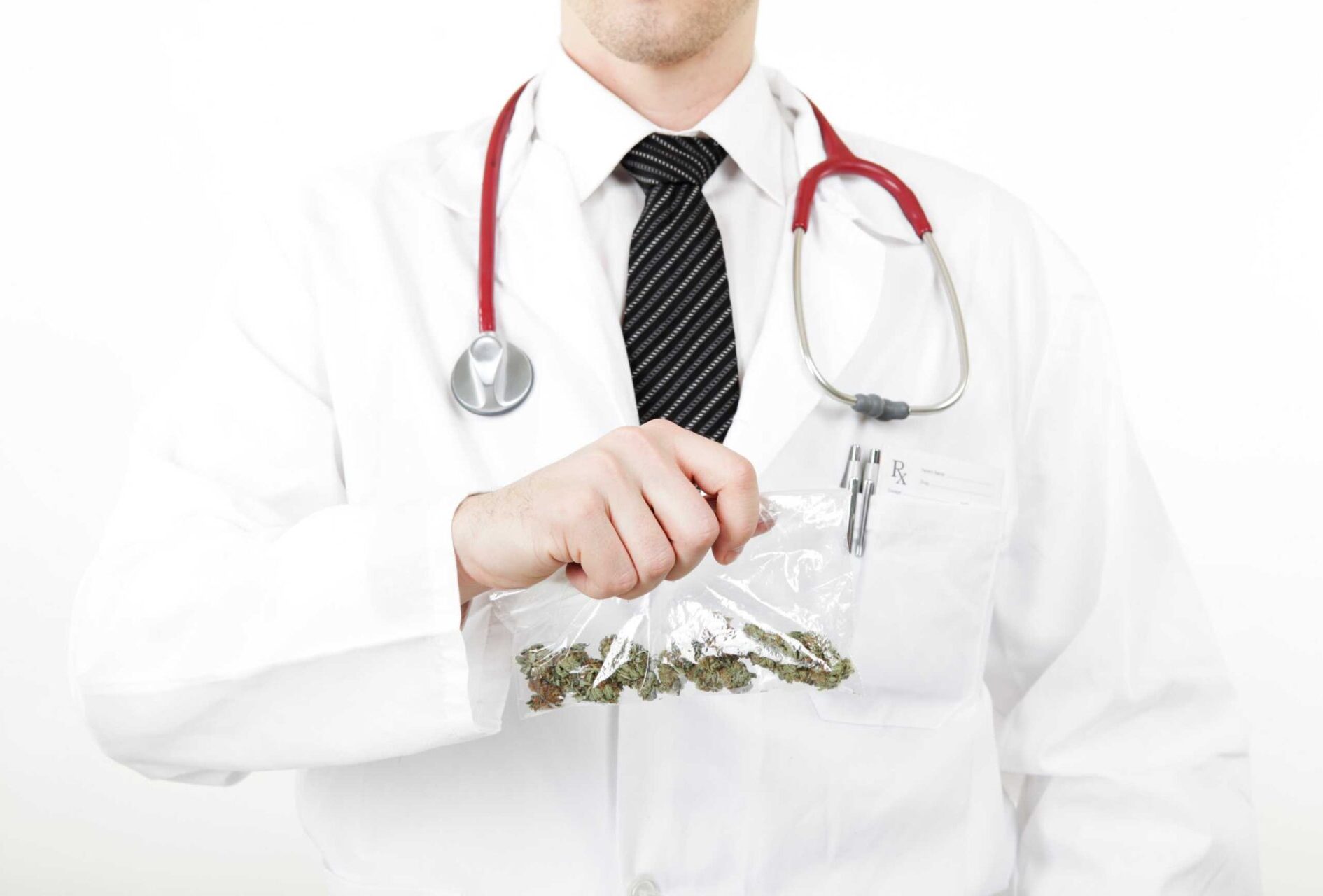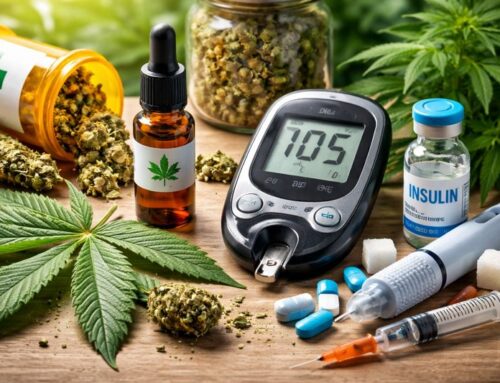Opioid use disorder (OUD) has emerged as a significant threat to human health. Since opioid addiction or dependency is an epidemic that affects millions of people in the U.S., finding alternative and safer pain management is becoming an urgent need. Medical Cannabis or cannabidiol (CBD), and tetrahydrocannabinol (THC) are some such options that people pay attention to. The article looks at the safe use of marijuana. Using cannabis can help people stop using opioids. Medical cannabis may be beneficial during withdrawal to reduce pain. However, there are risks associated with using it.
What is Opioid Use Disorder?
Opioid use disorder is an ailment in which a person becomes addicted to drugs like oxycodone, hydrocodone, or morphine. The pills are generally prescribed as a pain relief drug, and when used long-term, they also cause addiction and tolerance, and the higher dose would not cause the same effect. Although opioids are very useful in treating pain in the short term, their extended administration may lead to severe side effects, including constipation, drowsiness, and mental disorders.
Opioids and Chronic Pain
Chronic pains can be treated using an opioid, which provides temporary relief. Nonetheless, in the long term, they are capable of aggravating the condition due to the development of physical dependence, withdrawal symptoms, and the likelihood of an opioid overdose. It is, therefore, necessary to find long-lasting and safer alternatives for treating chronic pain.
The role of THC and CBD in the Opioid use disorder
Side effects can be produced by the use of cannabis drugs, as it does with other treatments. A typical side effect of THC, which is one of the substances found in Cannabis, is that it may cause dizziness, dry mouth, and the acceleration of the heartbeat. Other users will also experience anxiety or, at some point, paranoia when they use large doses of THC. In case patients cease to use opioids, then they ought to be administered low doses of THC, which can be increased gradually, but this must be done under professional advice.
Medical Cannabis as The Means of Withdrawal from Opioids
The practice of using Cannabis to control the symptoms of opioid withdrawal
Withdrawal symptoms of opioid abuse can be so tricky, and they include nausea, sleeplessness, anxiety, and pain in the muscles. Medical Cannabis, especially CBD and THC, has been proven helpful in the alleviation of these symptoms. CBD is famous for its effect of calming people, and in the case of opioid withdrawal, it can assist victims with alleviating anxiety and stress. Low levels of THC are beneficial in the treatment of muscle pain, sleep, and nausea, which are also among the main symptoms of opioid withdrawal.
Cannabis Safe and Effective Use in Withdrawal
Although Cannabis is helpful, we should bear in mind that it does not work similarly with all people. Cannabis may relieve withdrawal symptoms a lot in some people, but in others, it may fail to give them the desired effects. Thus, it should be regarded as a constituent of a comprehensive treatment program. A healthcare expert should closely monitor the use of Cannabis in opioid withdrawal to guarantee its secure and successful application.
Side effects of Cannabis Epileptic:
Just like other remedies, taking cannabis drugs may produce some side effects. THC, a constituent of Cannabis, is among the usual side effects, which may cause its user to become dizzy, experience dry mouth, and have an elevated heart rate. Other users might as well develop anxiety or paranoia, particularly when they consume large amounts of THC. In case patients terminate their intake of opioids, low amounts of THC should be provided, which can be enhanced with time; however, it is only possible with professional control.
The Importance of Professional Supervision During the Transition: Why It Is Important
Healthcare professionals and Family Physician
Opioid to cannabis transition is not supposed to be performed without the supervision of a medical worker. You must meet a medical professional, either a family doctor or an addiction specialist, who will keep track of your development, increase or decrease the dosage of Cannabis, and observe possible side effects. A medical professional will also be able to evaluate any psychological problems that can be the cause of opioid addiction and recommend proper treatment.
OUD Comprehensive Treatment Programmes
In most situations, the opioid-to-cannabis transition must form a part of the overall holistic treatment regimen involving behavioral therapy and the use of other drugs. Opioid use disorder requires a holistic treatment plan that would work on the individual conditions of physical and psychological addiction.
The way Medical Cannabis can help decrease the danger of opioid overdose
The reason why Cannabis is a viable treatment alternative to opioid use disorder is because it has the opportunity to minimize the risk of opioid overdose. The opioid crisis does not slow down and takes lives at a rate that is hard to fight, and it is essential to find a method to minimize the use of opioids. Research studies have indicated that Cannabis, when used as a complement to a treatment regime, has been able to lower opioid usage and, hence, lower the risk of overdose.
The THC and CBD in Lessening Opioid Use
Cannabinoids such as THC and CBD act on the receptors of the brain, affect the level of pain perception, and eliminate the necessity to take large amounts of opioids. When patients start to use Cannabis to manage their pain, the patients also realize that they do not need to use as much opioid medication as they did before. This can slowly reduce the total amount of opioids a person uses and lower the risk of overdose.
Treatment of the Mental Health and Chronic Pain in the Transition
Chronic pain uses of Cannabis
Cannabis shows promise not only for treating opioid withdrawal but also for managing chronic pain conditions like neuropathic pain (e.g., multiple sclerosis, diabetic neuropathy) and inflammatory pain (e.g., arthritis). It may help reduce opioid use and provide patients with safer alternatives for managing their illnesses.
Treatment of Mental Health Withdrawal
Cannabis also has mental health values, which are crucial in the process of opioid withdrawal. Most of the individuals with opioid use disorder are exposed to anxiety, depression, and insomnia. CBD can reduce anxiety, while THC may enhance mood and lessen depression. Their combination may provide essential psychological support during the transition.
Legal and Regulatory Cogitations
Cannabis laws vary from state to state. Some states have strict rules regarding who can use it, while others permit a wider range of individuals to do so. Before you think about using Cannabis for health reasons, you need to learn the laws in your state to make sure you can use it the right way.
The State Regulations Adherence
To access medical Cannabis, patients must follow a legal process. This usually includes talking to a licensed healthcare provider, getting a medical cannabis card, and following state regulations. Understanding the cannabis laws in your state will help you avoid legal issues when stopping opioids.
Conclusion- a Secure and Modest Transition to Cannabis
Cannabis might offer a safer way to cope with pain and withdrawal for folks trying to move past opioid misuse. Moving to Cannabis isn’t something to rush; working slowly with a doctor makes sure the switch is sensible. Chemicals in the plant like THC have shown promise for easing cravings, dialing down pain, and long-standing opioid habits. Even if Cannabis feels gentler than pills, every tool comes with some chance of harm, so using it with clear medical advice is key.
FAQs
What is the withdrawal period of opioids?
Opioid withdrawal usually starts within 6–12 hours for short-acting opioids and can last 4–10 days. Some symptoms may last longer.
What helps against opioid withdrawal?
Supportive care, hydration, medications like buprenorphine or clonidine, and natural options like medical cannabis can ease symptoms.
How to detox opioids from the body?
Detox involves slowly reducing the opioid dose (tapering) under medical supervision, along with rest, fluids, and symptom management.
Is cannabis good for opiate withdrawal?
Yes, studies suggest medical cannabis may help reduce pain, anxiety, and nausea during opioid withdrawal, making the process easier.
When should opioids be tapered?
Opioids should be tapered when the risks outweigh benefits, when dependence develops, or if pain can be managed by other treatments.





